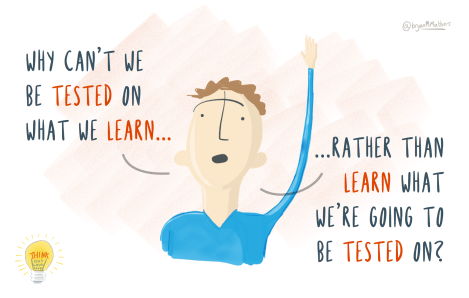Following on from Health’s Got Talent in June (see our previous blog posts), we are sharing some of the excellent learning and teaching and practice presented at the event. In this post we will explore the use of technology to support assessment diversification, with an example from Caroline McGraw in the School of Health Sciences. Caroline is the module leader for the Innovations in Healthcare: Leadership and Management Perspectives module.
Below is a video case study made after the first year of the project:
Contents
Diversify assessment with multimedia
What did Caroline do?
Caroline approached the Educational Technology Team (ETT) in 2016 with the idea to change the then assignment which consisted entirely of a 3,000 word essay, to include a “digital pitch” produced by students to try and sell their innovation and present some aspects of their business case for the module.
Connie and Matt from ETT, who both have multimedia learning and teaching expertise, worked with her to design and implement the project for the 2016/17 and 2017/18 cohorts.
- Caroline changed the assignment to an essay worth 80% and the digital pitch worth 20% of the final grade.
- Connie and Matt facilitated sessions for students around understanding what a good pitch video is and how to produce it (planning, designing, copyright), as well as hands-on session on creating and editing videos. They shared resources with them via the Moodle module page and provided access to LEaD’s MILL facility and equipment.
- They also provided advice and support to Caroline on developing suitable marking criteria for this type of assessment and creating a Video Assignment submission point on Moodle.
What was the pedagogical need?
The rationale for introducing this new form of assessment to complement the essay assignment was:
- To reflect the topic of the module, which is innovation
- To support students building on an existing skill set (producing a business case, presenting, convincing, pitching, etc)
- To provide an opportunity for authentic assessment, which is defined as “an assessment requiring students to use the same competencies, or combinations of knowledge, skills, and attitudes that they need to apply in the criterion situation in professional life” (Gulikers, Bastiaens and Kirschner, 2004)
Student Feedback and Engagement
The module ran twice (2016/17 and 2017/18) with this new form of assessment and received good feedback. Caroline said that students saw it as an opportunity to maximise their marks. She was also very pleased with the high quality of pitches that could be used in real life.
Some feedback from the module evaluation:
“The technology team (Matt + Connie) have been very helpful in being simplistic about explaining clearly how to complete digital pitch. This has reduced any anxieties that I initially had.”
“opportunities to learn how to do a digital pitch and learn how to use a standardised framework to pitch ideas to our employer”
They also praised the opportunity to “be creative” and “learn about a different media style”
Key takeaways
- This type of project needs a “comprehensive package of suppport”, as Caroline described it. Indeed, it involved changing the module specifications and assessment guidelines and required guidance and support at all stages of the design and implementation of the project, for both students and lecturer. ETT was involved in the technical as well as the pedagogical side of the project
- Top tips from Caroline:
- Think about your students’ level of digital literacy and make sure you cater for the diversity.
- Engage early with LEaD. Such interventions require technical and pedagogical expertise as early as the design stage all the way to implementing and evaluating them.
- Consider the assessment criteria carefully: they should not be mainly about production but about content and presentation
Want to diversify assessment with technology?
The Educational Technology Team in Learning Enhancement and Development (LEaD) can provide pedagogic and technical expertise and support to help you develop your teaching further.
Drop us an email and we would be happy to discuss with you how we can help.
References:
Gulikers,J.,Bastiaens,T.and Kirschner,P.(2004).A five – dimensional framework for authentic assessment. Educational Technology Research and Development , 52 (3), 67-85

